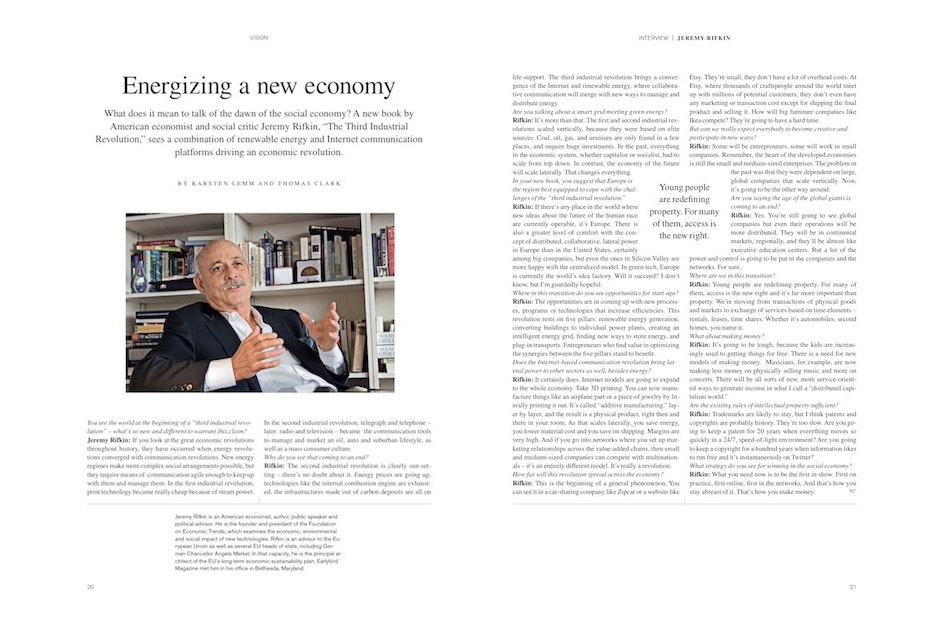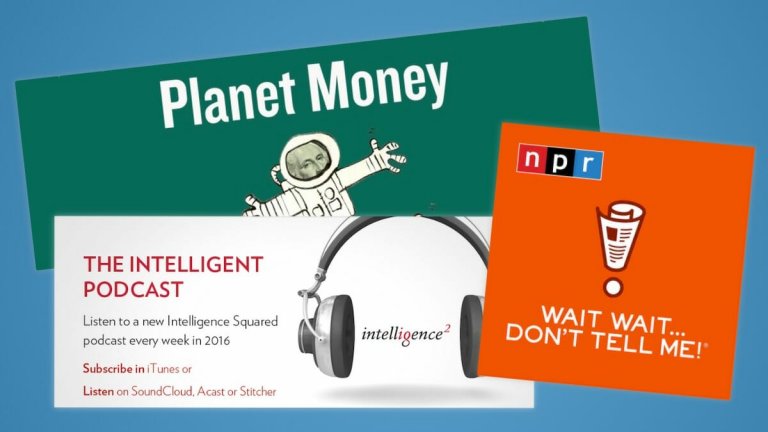
What happens when cleantech meets peer-to-peer and the sharing economy? Imagine if we’d all have solar panels on the roofs of our homes, companies had green buildings, perhaps their own wind parks, and the electric grid were smart enough to handle traffic in both directions: from the utility to you, but also back into the system, so that it all becomes a big give and take. Suddenly the energy market really does feel like a market, rather than a static oligopoly, and it has all the vibrance of the Internet economy.
That’s exactly why author, economist and one-man think tank Jeremy Rifkin sees the chance for a Third Industrial Revolution – one that could literally bring power to the people, having no less of an impact than steam power and the rise of mass production.
“In the past, everything in the economic system, whether capitalist or socialist, had to scale from top down,” Rifkin told my colleague Thomas Clark and me when we interviewed him for Earlybird Magazine. “In contrast, the economy of the future will scale laterally. That changes everything.” Thanks to networking effects, Rifkin argues, “small and medium-sized companies can compete with multination – it’s an entirely different model. It’s really a revolution.”
The Q&A is available as a free download via this Slideshare link.


